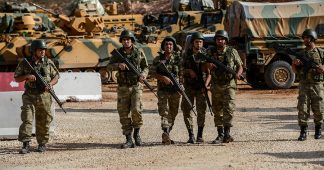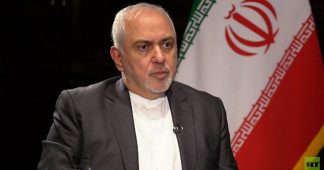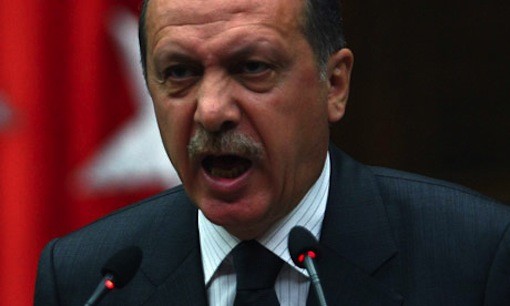Pentagon, State Department envoy clash over sending Patriot missiles to Turkey
James Jeffrey has been pressing DoD to send additional military equipment to Turkey to help it repel the Syrian government’s assault in Idlib province. But the Pentagon is resisting.
James Jeffrey, the U.S. special representative for Syria engagement, has been pressing the Defense Department to send Patriot missile defense batteries to Turkey to help it repel the Syrian government’s assault in Syria’s Idlib province, the people said. But Pentagon officials are worried about the global ramifications of a move they see as reckless.
The internal disagreement is the latest illustration of how the U.S. has struggled to tackle the long-running, multi-sided conflict in Syria, which has drawn in a range of countries and terrorist groups. President Donald Trump has on multiple occasions tried to reduce the American role in the Arab-majority country, only to agree to aides’ requests not to fully pull out.
Backed by Russian air power, Syrian government forces are attempting to seize the last remaining territory there held by Turkish-backed Syrian opposition forces. At least 33 Turkish soldiers were killed in Syrian government air raids in the opposition-held province on Thursday, marking a dramatic escalation of a conflict that has driven nearly a million people from their homes in the past three months.
Turkey, a fellow member of NATO, has asked the U.S. to deploy two Patriot batteries on its southern border. Jeffrey, who is also a former ambassador to Turkey, is urging the Pentagon to follow through with the request and potentially to establish a no-fly zone, one of the people familiar with the matter said.
But senior leaders at the Joint Staff and the Office of the Secretary of Defense are resisting Jeffrey’s proposal, according to State Department and DoD officials and two additional people familiar with the discussion. Defense officials believe the move would set a bad precedent and would not change Russian or Syrian calculations in the conflict, the State Department official said.
DoD officials are “resisting doing foolish things with real global ramifications,” the State Department official said.
“This was and remains a bad idea,” said one of the people familiar with the discussions.
Turkey and the U.S. have a history when it comes to the Patriot. Over Washington’s objections, Ankara last year received an advanced Russian S-400 missile-defense system that the U.S. considers a threat to the F-35 fighter jet and NATO air defenses. The U.S. had offered the Patriot as an alternative, but Turkey has committed to the Russian system. As a result, Washington kicked Turkey out of the F-35 program, for which it was both a customer and manufacturing partner.
A DoD spokesperson declined to comment. A spokesperson for Jeffrey referred POLITICO to a statement from Secretary of State Mike Pompeo, who on Friday condemned the attack and called on the Syrian government and its Russian and Iranian backers to cease their assault on Idlib. He noted that the U.S. is “reviewing options to assist Turkey against this aggression.”
“We stand by our NATO Ally Turkey in the aftermath of the despicable and brazen February 27 attack on Turkish forces in Idlib, which resulted in the death of dozens of Turkish soldiers,” Pompeo said. “The United States condemns this attack in the strongest possible terms.”
The United States is looking to provide urgent assistance to Turkey in Idlib province in the form of information sharing and equipment, a senior State Department official told reporters on Friday. The official ruled out “military moves by American units,“ but said “there are other ways we can support them.”
Kelly Craft, the U.S. ambassador to the United Nations, called for an immediate ceasefire in northwest Syria and urged Moscow to ground its warplanes.
“As President Trump has made clear, the [Bashar] Assad regime, Russia, and Iran must halt their offensive before more innocent civilians are killed and displaced,” Craft said in a statement.
Published at https://www.politico.com/news/2020/02/28/turkey-patriot-missiles-pentagon-118256











